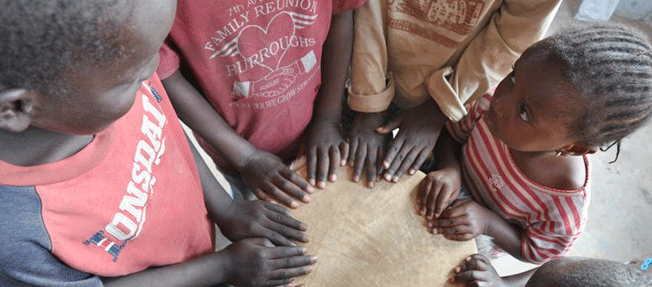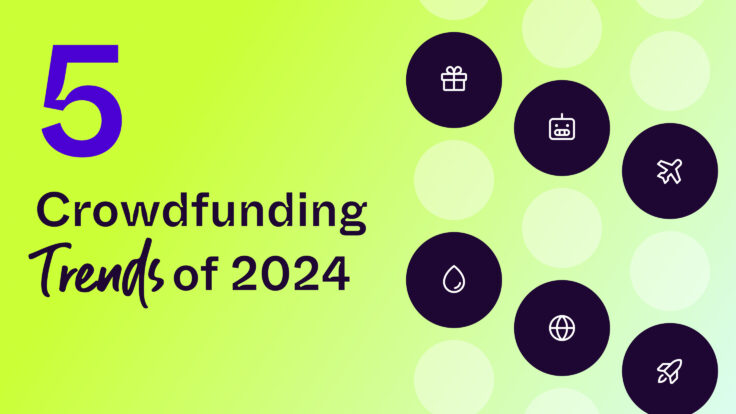Have you ever been inspired? Inspired enough to make a big change in the world? Even if that change required you to travel half way around the world and raise 10s of thousands of dollars?
Today, we speak with Steven Pile, a California musician who is raising funds to build a solar-powered music school in Gambia, West Africa. His amazing journey proves that great art, and great impact, can occur anywhere in the world if you care enough to make it a reality.
Q1: Your whole story starts with hearing a “kora.” Could you explain what is so wonderful about this instrument that it made you want to travel to Gambia and eventually build a school?
The Kora is a 21st string (sometimes up to 24!) Mandinka harp from West Africa. It is made from a gourd, wood and leather, and uses fishing line for strings. When you first hear the kora you are instantly transported to another world. All the beautiful cascading tones you’d hear from a Western harp are there, but they are tied together with incredibly complex syncopated African rhythms. It is intoxicating. The first time I heard the instrument, I knew I had to travel to the source and learn to play. Over my 3 trips, it became apparent that there is no established school for studying the kora in Gambia. People like me have been traveling there for decades to learn, but teachers, like my teacher Jali Bakary, will give up their beds and lodging to accommodate students.
Q2: You say that the western world is eroding traditional Mandinka culture. How can the West instead help to preserve this tradition?
Western culture has arrived full-force in Gambia. Many of the younger generation have adopted the styles, musical tastes, and digital appetites of our youth culture. Also, in the educational sphere, you have history books written by westerners that cover mostly colonial history and briefly gloss over the important role that the musical historians, the griots, have had in keeping the culture alive. Nonetheless, the griots are still here, and future griots are being born into these ancient family lines. By supporting efforts like ours, westerners can help us generate the resources to encourage and facilitate the transmission of the role of the griot to the next generation. The school will be a sanctuary where young griots can mentor under their elders, learning the songs and local lore of their people.
Also, by visiting the school and studying music in Gambia, westerners generate income for the local economy and serve as reminders to the youth just how special their musical heritage truly is. People are traveling from around the world, just to learn their music! That is pretty powerful.
We know that we can’t keep the influence of the west out of Gambia, and we don’t want to do that. The internet now offers endless ways to promote the music, the school, and open up discussions about these amazing stories and songs. Many Gambian griots are on Facebook, for example, and are able to network with music fans and historians throughout the world, as well as with other griots within Gambia. Innovations in recording technology have made it possible to record and transcribe the songs and stories for posterity, and do so relatively cheaply. The “Afro Manding” sound that comes from Gambia is a mix of traditional Gambian songs, reggae, latin, rock and Senegalese M’Balax. It is a beautiful sound, and all the more for the mix of styles it encompasses. So, we don’t want to push the west out, we just want Mandinka history and culture to co-exist and continue to offer the bridge to the past that is so vital to culture.
Q3: Building the school is an amazing international effort. Did that make it important to use an crowdfunding platform with an international presence?
We realized that we needed a platform that would allow the project to penetrate beyond just our local community. We have been able to connect with people from Canada to Australia to Norway, even other countries in Africa, and more and more people are catching on to what we’re doing. Indiegogo’s wide reach and easy-to-use sharing tools have really made helping out an easy thing for people from all over the world. We want to attract a world wide audience to the School, and Indiegogo was a perfect way to do that. Also, the fact that we were able to partner with a fiscal sponsor with 501(c)(3) status has really helped encourage larger donations, (we’ve had a few $1000 donations already!). It is nice to be able to offer the tax-deductible benefit of these donations.
Q4: You have a lot of different perks, from very small up to quite large. Do you feel that this approach was important to the success you’ve had so far?
The perks are such a great part of Indiegogo. I love that when all is said and done, every single donor will have at the very least some music from this wonderful country. Feedback that I’ve gotten has shown that people are really excited to get their MP3s, which all donors get. Those that opted for their name on a brick of the school love the idea that a little part of them will be there at the school that they helped build. One of the roles of the griot is a praise singer, so it made a dedicatory song a great idea for a perk. For $250 you get a song specifically praising you. It’s a great feeling, beneficial for the singer and the subject. There is something for everyone, but everyone gets something. I think its a great aspect of a crowd-sourcing campaign.
Q5: You are well on the way to your $10,000 goal, but you mention that in reality you will need $25,000 to finish the school. Do you have plans for subsequent rounds of fundraising?
We wanted to set our goal at something we felt was attainable, but that would also allow us to realize a very big part of the school, the building itself. Perhaps we should’ve started higher, but it was a hard call to make with the sad state of the economy. I’m hoping that we make it over the goal! We need approximately $25,000 more to really outfit the school with a solar powered music studio to start building the Audio Library, and we hope that by showing our dedication by building the school through the Indiegogo campaign, we will have a stronger case when approaching people for larger donations and applying for grants. We are currently looking for donors that would like to help us with the additional $25,000 over the next year.
is currently raising on Indiegogo
Get the latest scoop




You must be logged in to post a comment.